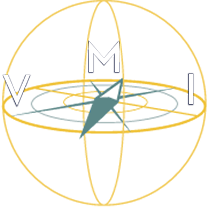
Susan Olding writes essays, poetry, fiction, and less easily classifiable things. Her writing has won a National Magazine Award, the TNQ’s Edna Staebler Essay Award, the Prairie Fire Contest, and two Event Creative Nonfiction contests, and appears widely in literary journals and anthologies throughout Canada and the US. Her first book, Pathologies: A Life in Essays, has become a popular teaching text. Her second book, Big Reader, was a finalist for the Canadian Authors’ Association Fred Kerner Award.
With decades as a professional teacher, mentor, and editor in settings ranging from community literacy centres to secondary school English classrooms to graduate-level seminars, Susan also serves as a private instructor and manuscript consultant to individuals and literary presses. She especially loves writing that blurs generic boundaries and engages the mind and heart in unexpected ways.
What will VMI participants gain from the program?
Sustained attention to their manuscript and ongoing, honest support.
What do you gain from the mentoring process?
I love witnessing the excitement writers feel when they know their work has landed with a respected reader. I love introducing them to work that will feed and inspire their own. And I love to help them determine what isn’t working and why, because by teaching, I learn, or learn again.
What is the most valuable insight or skill that your VMI writers have learned from you?
They’ll be the best judges of that. But the question of how to sustain a creative life over time is a particular focus of mine, both in classrooms and in one-to-one mentoring relationships.
What book, poem or other written work has been most inspirational to you?
Too many to name. But I do want to mention the letters of John Keats—my historical boyfriend. I’m also greatly inspired by writing friends and peers, including the other mentors in this program.
What books do you recommend VMI participants read for additional advice?
Depends on the writers and their projects. But a few that are especially pertinent to creative nonfiction include Vivian Gornick’s The Situation and the Story, and Brenda Miller and Suzanne Paola’s Tell It Slant.
Another valuable book: Art and Fear: Observations on the Perils (and Rewards) of Artmaking, by David Bayles and Ted Orland. And Twyla Tharp’s The Creative Habit. I also love Virginia Woolf’s diaries.
What is the most valuable piece of writing advice you have received?
“Stare at anything long enough and its literary archetypes will reveal themselves.” (Jim Paul)
The metaphor is in the material. (My translation).
What are you currently working on?
Too much! Always too much. But this is my process.
The common (and sensible) advice for most writers is to write until you’re finished and then edit. Doesn’t work for me. My process almost always involves starting, stopping, then circling back (hours, days, weeks, years, sometimes decades later) and after some more starting, stopping, and circling, finally finishing off. Apparently, Elizabeth Bishop was like this with some of her poems. That offers solace in dark times.
Practically, what this means for me is that I’m often working on multiple projects in various stages of development.
I’ve just finished a second round of revisions on my first middle grade novel. Next, I’m returning to poetry.
What do you wish you knew when writing your first manuscript that you know now?
Your process is your process, and it’s fine. Listen to others, but allow yourself to find your own path. Each book will demand something different of you. Listen. Pay attention. Begin again.
